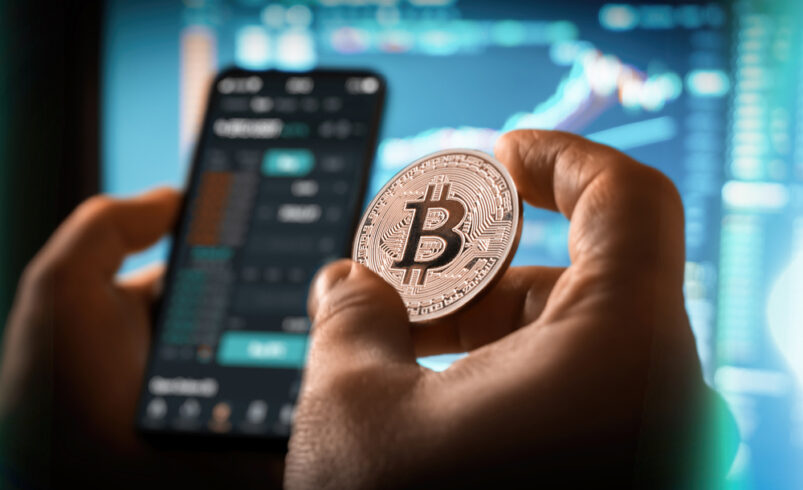U.S. Treasury Releases Report, Comments on Risks Surrounding Digital Assets

The United States Department of Treasury has identified major financial risks related to Non-Fungible Tokens (NFTs) in a detailed report that was made public today. This is the latest action taken by regulators in response to the digital asset market.
The study draws attention to the extraordinary volatility of NFT prices, which is mostly caused by speculative trading. Investors face serious risks as a result of this volatility, especially retail investors, whose excitement can lure them without fully appreciating the possibility of suffering sizable losses.
The review by the Treasury revealed a major possibility for market abuse and irregularities when NFTs are involved. It was stated that it is possible to use NFTs for illegal activities worthy of causing global conflict – which resonates with the need for closer monitoring of the system.
Stating the destructive attributes of digital assets, the report acknowledged the government-sponsored hack program by the North Korean (DPRK) government, which it claims has constantly sponsored hacking groups to attack the United States market.
Study Hints on Money Laundering and Other Related Activities
The Treasury has identified fraud and market manipulation as the two main issues in the NFT industry. The research documents instances of price manipulation techniques, including wash trading (when traders boost values by selling assets to themselves), and phoney or misleading NFTs. Concerns over money laundering and other illegal activities are also brought up in the study.
The paper also draws attention to concerns about intellectual property. Because NFTs frequently involve the sale of digital property and art, ownership conflicts are common and further complicate the legal environment. The report went ahead and made some recommendations for correcting the effects of the identified abuses and their impending implications.
The paper also emphasizes how NFTs affect the environment, especially when they are used on energy-intensive blockchains like Ethereum. The study urges that sustainability be taken into account when developing and implementing NFT technology. The Treasury report makes a number of recommendations to improve oversight and reduce risks in the NFT sector in light of these findings.
Reports Suggests Introduction of AML and KYC As Preventive Measure
According to the research, strong AML and KYC procedures are crucial for preventing money laundering and other illegal activity. This entails mandating that NFT platforms confirm users’ identities and report any questionable transactions. The Treasury also supports more efforts to inform the public about the dangers surrounding NFTs.
The paper promotes the development of sustainability activities within the NFT ecosystem and the investigation of more energy-efficient blockchain technologies. While some NFT community applaud the demand for consumer protection and regulatory clarity, others voice worries about the possibility that excessive regulation may stifle innovation.
According to blockchain analyst Jane Smith, while commenting on the report, said that “regulation is necessary to protect investors and ensure the legitimacy of the market.” On the other hand, some industry players are concerned that strict regulation may force NFT operations underground or force innovation to more lenient laws.
Report States More Problems with NFTs, Makes Recommendations
The Treasury has also highlighted market manipulation and fraud as urgent issues. It warned that fraudulent activity like rug pulls and wash trading, erodes investor confidence in the NFT market and can cause serious financial losses.
The United States Treasury has claimed that amid the cryptocurrency market abuse by some investors or associated fraud that usually happens with new innovative investments like cryptocurrency, there’s always a possibility it can turn out to be a scheme. They said that fraud like this is usually predominant with digital assets, with the manipulation of smart contracts being the most common.
While commenting on the relevance of NFTs, the Treasury Department revealed that only a small proportion of NFTs were lost during most of the hacks sponsored by the North Korean government, which also affected most financial institutions in the United States.
The recommendations include close monitoring and regulation of the NFT market, a strong collaboration with cryptocurrency insiders to mitigate fraud, and a strong partnership with international partners to avoid illegal international financial transactions. They also suggested sensitizing customers to future risks linked to NFTs and other digital assets alike.
DISCLAIMER: It's important to know that the stories on this blog are not meant to serve as, nor should it be construed as, advice in legal, tax, investment, financial, or any other professional context. You should only invest an amount that you are prepared to lose, and it's advisable to consult with an independent financial expert if you're uncertain. For more information, kindly consult the terms of service and explore the assistance and support areas provided by the issuing or advertising entity. Our website is dedicated to accurate and unbiased reporting, but it's important to note that market circumstances may change rapidly. Additionally, please be aware that some (but not all) articles on our site are sponsored or paid posts.













